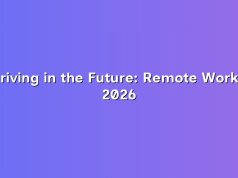What are conflict management skills, as well as exactly how can they assist you at work? Strong conflict management skills are advantageous in many levels in an organization, as the conflict is difficult to stay clear of. However, it is human to differ, and conflicts are healthy and balanced when appropriately approached.
Eliminating conflict would trigger its own issues: there would be no variety of opinions and no way for us to capture and rectify wrong strategies and policies.
Effective communication – the exact opposite of ostriching, our wishful approach to quarrels.
Communication and also conflict resolution in the work environment constantly work together. Try as you might, ostriching (burying your head in the sand) is never a successful tactic.
The opposite of preventing the issue, dealing with the concern headfirst, works out most times. This brings us to creating a proactive communication strategy, which entails understanding the heart of the problem and the stakes of those included.
Team awareness
Beyond recognizing the strength and weaknesses in yourself, you’ll require to see them in your team too. Understanding how each employee sees problems and communicates them can help you better manage conflict in your team.
Patience
When resolving an issue, feelings are already running high. Include impatience to the mix, and things can boil over– and all your effort could be wasted. So rather than rushing in to solve conflict situations, remain patient.
In such situations, before coming to a conclusion or making a decision, you could take a moment and ask yourself, “Do I need to make this choice right now, or can it wait up until tomorrow?” A short delay or a “cooling off” period can help you come to the right decision.
Humility
Humbleness keeps your ego in check. Instead of believing you have the very best suggestion (which could induce you to overlook other options), remain open up to the probability that you’re wrong.
Some indicators of a humble approach to conflict management:
You allowed the people associated with the conflict to talk their ideas openly to you instead of talking over them with your ideas.
You look for feedback from others regarding exactly how you’re managing the conflict and what you might do better.
You respectfully accept criticism without making excuses, and also, you think of ways you can reinforce your conflict management skills based on those feedbacks.
Adaptability
Conflict management often requires a method equally as vibrant as your team. You might attempt one technique, yet it’s alright to change course if you see it isn’t working well. As an administrator, you’ll benefit from remaining adaptable throughout the procedure, never getting fixated on one method.
Negotiation– absolutely nothing’s going to resolve itself unless you speak up.
To properly handle a problem, you’ll need to conceptualize new means to approach the case and accommodate all sides as feasible. This calls for creativity. Unfortunately, one typical side effect of conflict is that we often tend to have a narrow vision when we’re upset or under pressure: We’re just not able to see all the possibilities.
To combat this issue, consider the “broaden-and-build” theory. This theory recommends that positive feelings– such as happiness, satisfaction, and fulfillment– help enhance creativity. So the following time you’re managing a dispute, it’s worthwhile to remain positive.
Observation.
One of the fundamental conflict resolution skills is observation because you must notice conflict even to begin the process; you must observe that it exists. Conflict always betrays some early signs. Here they are:
Raised voice tone. Throughout a meeting, if you discover somebody’s voice tone ends up being agitated or louder than expected, you might soon have a problem on your hands.
Emotionally loaded words. Take note of words that show negative emotions and varying perspectives.
Displeased facial expressions. Keep an eye out for any descending turning of the lips, grimacing, eyeball rolling, or furrowed brows.
Avoidance. The dispute doesn’t constantly turn out as shouting and confrontational. Occasionally, you’ll know there’s a conflict when individuals start avoiding each other. Search for any change in behavior, such as two teammates who used to team up a great deal unexpectedly giving each other the silent treatment.
The future of work means differently to each one of us: some see it as more technology and less human, some expect a more humanized space and some others imagine it to be a no-workplace world. In our journey to unwrap FutureofWork, Work2.org invites leaders from various industries to help our global community to understand what the posterity holds for workers, leaders and organizations. While our team is busy at bringing this fresh ideas directly to you, we would appreciate our community help in making it possible. If you like what you’ve read, we would appreciate if you could spread the word within your circles and let us know if anything you want us to bring into this #FutureOfWork conversation.



























